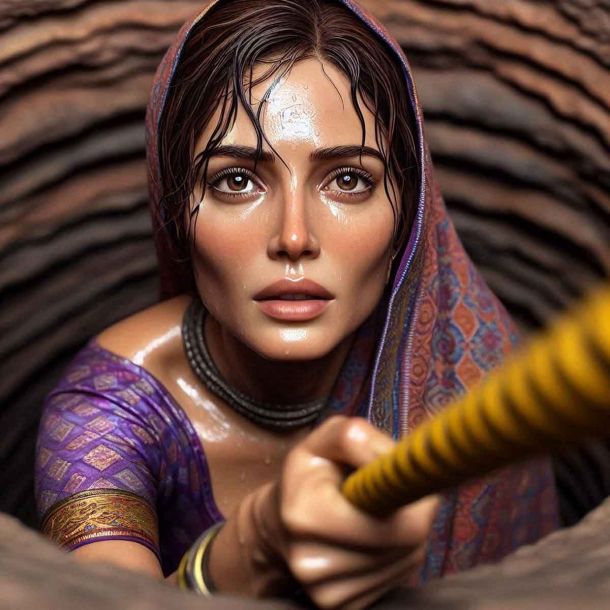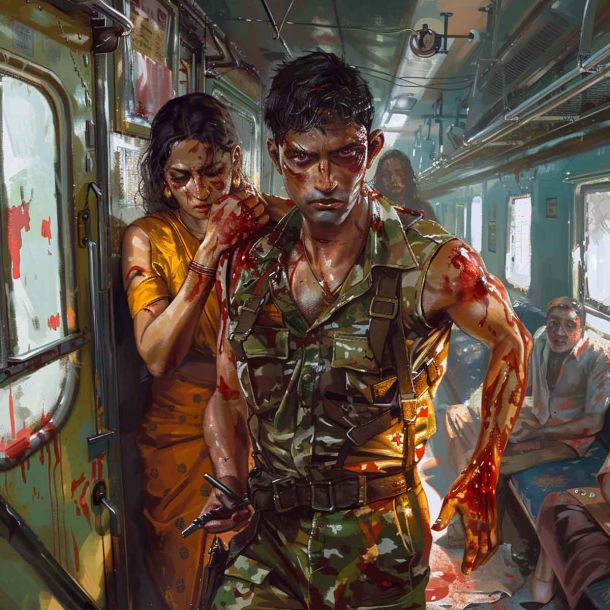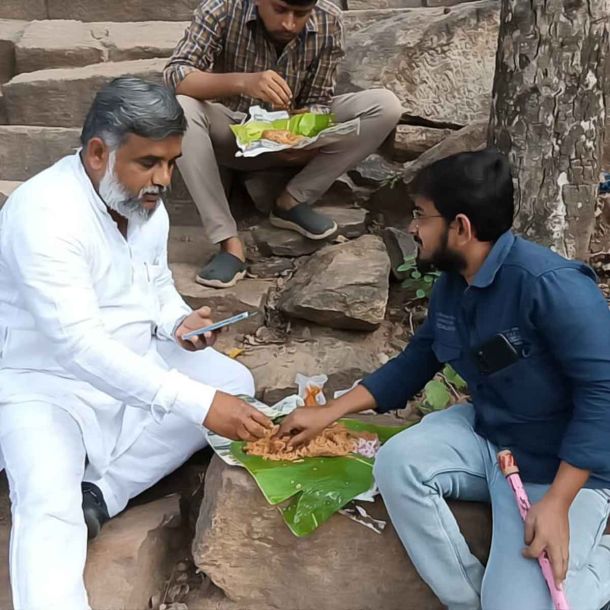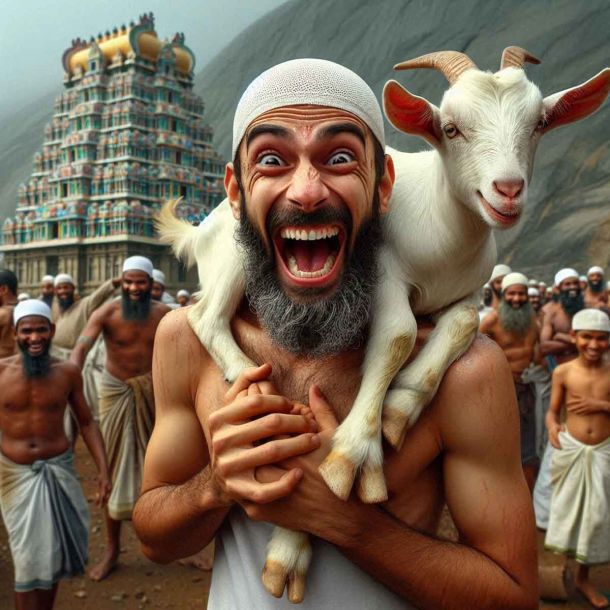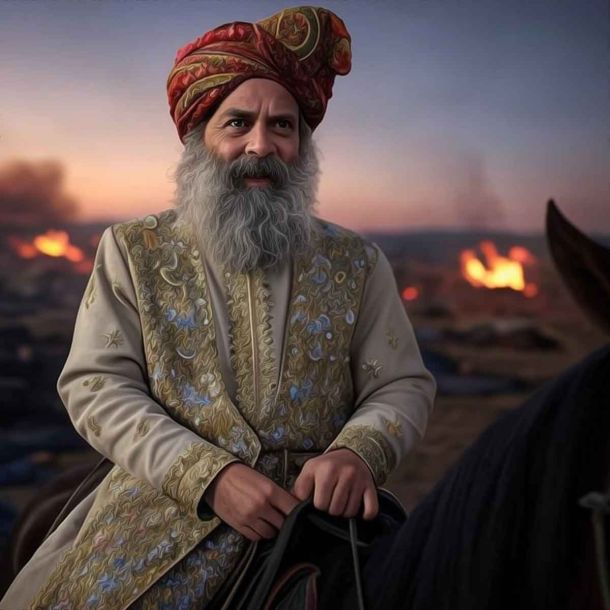MORE COVERAGE
Significance of Hindu Society - Hindu Society Under Siege
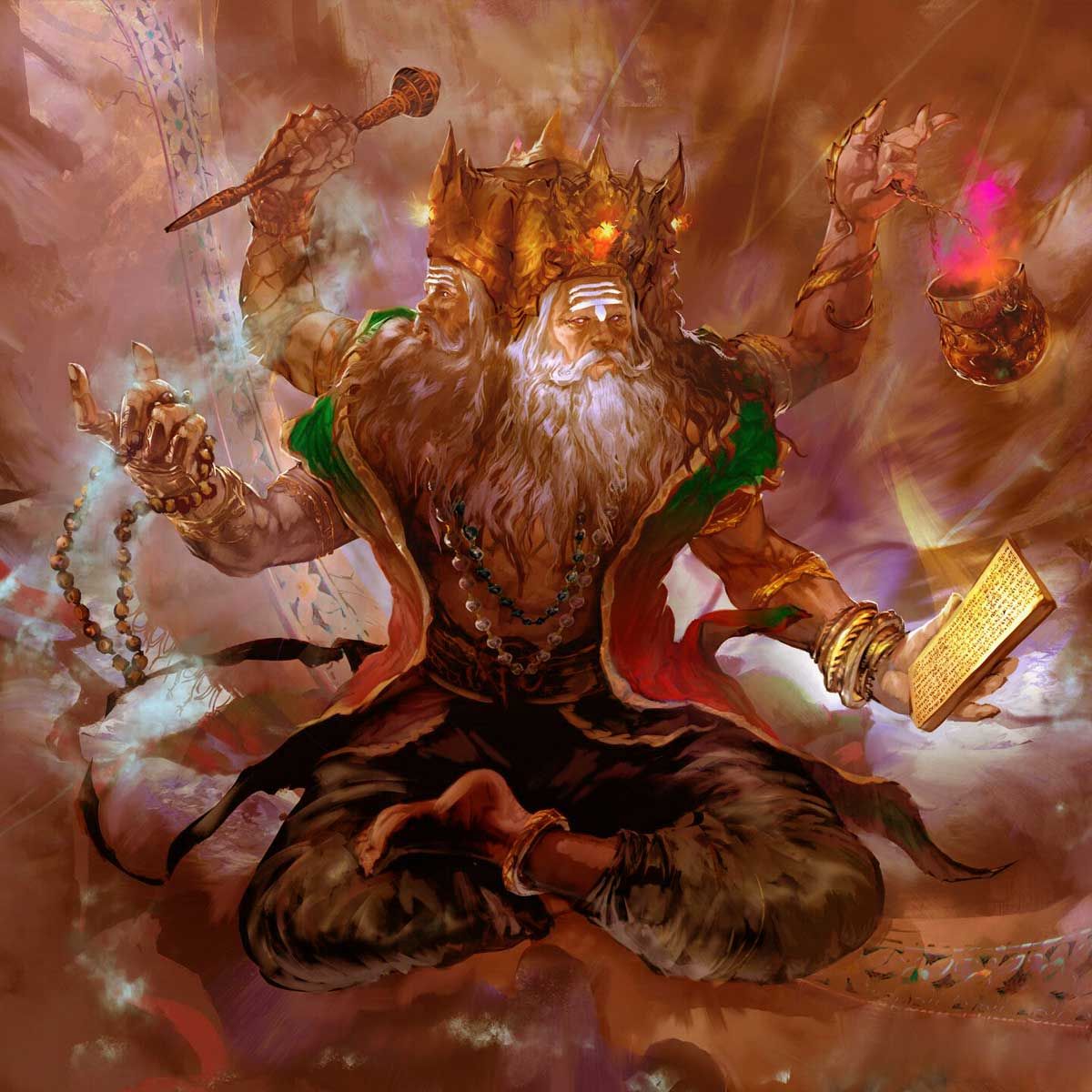
Hindu society is the only significant society in the world today which presents a continuity of cultural existence and functioning since times immemorial.
Most other societies known to human history-East and West, North and South-have suffered a sudden interruption and undergone a traumatic transformation due to the invasion and victory of latter-day ideologies-Christianity, Islam, Communism. The pre-Christian, pre-Islamic and pre-Communist cultural creations of these societies are now to be met only in libraries and museums, thanks to the labours of antiquarian scholars.
Hindu culture can meet the same frightful fate if there were no Hindu society to sustain it. This is the point which is not always remembered even by those who take pride in Hindu culture.
There are many Hindus who cherish the great spiritual traditions of Hinduism and its scriptures like the Gita and the Upanishads in which that tradition is enshrined. But they do not cherish with an equal enthusiasm the Hindu society which has honoured and preserved these traditions and scriptures down the ages.
Again, there are many Hindus who proclaim with great confidence that Sanãtana Dharma that is Hinduism can never die. This is true in a sense. There will always be individuals in non-Hindu societies who will recover the mystique of Sanãtana Dharma through their efforts at self-discovery. But Sanãtana Dharma will surely suffer an eclipse and no more inform mankind at large with its message, if there is no Hindu society to sustain it.
Lastly, there are many Hindus who are legitimately proud of Hindu art, architecture, sculpture, music, painting, dance, drama, literature, linguistics, lexicography, and so on. But they seldom take into account the fact that this great wealth of artistic, literary and scientific heritage, will die if Hindu society which created it is no more there to preserve, protect and perpetuate it.
But the death of Hindu society is no longer an eventuality which cannot be envisaged. This great society is now besieged by the same dark and deadly forces which have overwhelmed and obliterated many ancient societies. Suffering from a loss of its elan, it has become a house divided within itself. And its beneficiaries no more seem to be interested in its survival because they have fallen victims to hostile propaganda. They have developed towards it an attitude of utter indifference, if not downright contempt. Let no Hindu worth his salt remain complacent. Hindu society is in mortal danger as never before.
It would be relevant to recall the history of Hindu society in order to put the record straight. For, there is very little in that record which invites indifference or contempt, and a good deal which deserves honour and homage.
A word about misunderstandings first. At one time the dominant school of Western historians and their Indian disciples, for whom Hindu history commenced with Alexander’s invasion, presented this history as a series of successful foreign invasions to which Hindu India invariably succumbed. They even invented an Aryan invasion of India in the second millennium BC to round up their cherished image of this country as some sort of a free for all into which any adventurer could descend and dwell at will.
The Aligarh school of historians have come out with the thesis that Hindu society being basically an oppressive and exploitative society since its very inception, the invaders did not have to mount much of an effort in order to break whatever resistance it could muster at any time. The minority of oppressors, we are told, retired into fortified towns and citadels, and the majority of oppressed masses came out in support of the invaders who were hailed as liberators.
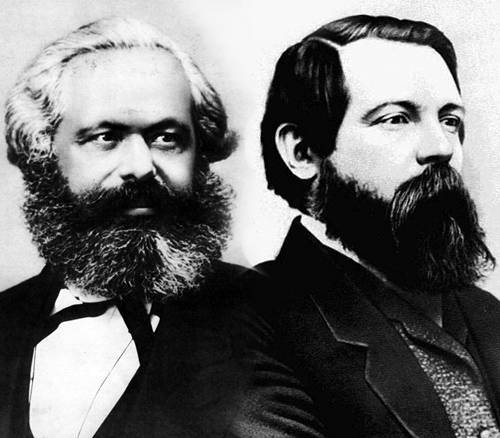 Karl Marx and Friedrich Engels - Historical Materialism |
The Marxist historians, in their turn, have welcomed this Aligarh approach with open arms. Their materialist interpretation of history stands vindicated. They have extended the Aligarh thesis to mean that the invaders were not only liberators on the social and political plane but also great incentives to forces of production. These foreign invasions, we are informed, were thus so many steps out of economic stagnation and towards material and social progress.
It is little use crossing swords with the stalwarts inspired by Mecca and Moscow. It has been seen again and again that whatever be the facts, their conclusions remain the same. Their conclusions remain the same because their motives are the same. The motives are to malign and misrepresent Hindu history in order to denigrate and destroy Hindu society. Now many Indians too have joined the game.
Responsible Western historians, however, concede that Hindu history is much, very much, older than Alexander’s invasion. They also concede that the theory of an Aryan invasion of India is at best a conjecture for which there is no positive evidence, literary or archaeological. They admit further that the account which the Hindus gave of themselves in the face of foreign invaders has been quite creditable and by no means dishonourable. And they agree that whenever the Hindus suffered a defeat it was largely due to their neglect of and consequent inferiority in the art of warfare rather than any serious defect or deficiency in their social system or cultural milieu.
There was a time, not very long ago, when Hindu culture was a revered culture throughout the civilized world. Its seers and sages, its mystics and monks, its scholars and scientists, its missionaries and merchants took its message to the farthest corners of world-East Africa, Egypt and Ethiopia; Sumeria, Assyria, Babylonia, Chaldea and Iran; Burma, China, Japan, Korea and Mongolia; Indochina, Indonesia, Malaysia and Thailand; Pacific Islands, West Indies, Mexico, Peru and Columbia; Asia Minor, Central Asia, Greece and Rome. The history of a hundred cultures and nations provides evidence of this hoary heritage in their religions and philosophies, languages and literatures, sciences and technologies, manners and mores.
True, the Hindus never constructed a strong, centralised state, like that of ancient Iran and Rome, which could tyrannise over its constituent units and invade the neighbouring countries. Yet their society was a strong, steadfast and stupendous creation based on a highly decentralised yet a cohesive social fabric made of organic units such as the clan (kula), caste (jãti), village (grãma), town (nigam), metropolis (nagar), country (janapada) and empire (sãmrãjya). Imperial systems rose and fell. But the infrastructure survived the test of time and remained vigorous and vibrant till very recent times.
Greek historians who accompanied and followed Alexander tell us that before this adventurer led his short-lived raid against the republics on the Punjab and Sindh, only two other foreign invaders had had the courage to cast covetous eyes on India. Queen Semiramis of Babylonia in the 8th Century and Cyrus the Great of Iran in the 6th Century BC attacked India with vast armies but were defeated at the borders and made to flee with very few survivors.
Plutarch leaves us in no doubt that Alexander himself had to beat a hasty retreat from the banks of the river Beas which, baffled by the brave resistance from a series of small republics, his armies refused to cross. And his successor in East Asia, Seleucus Nicator, was soon humbled and not only made to cede conquered Indian territory but also pay homage to the Indian emperor by a matrimonial alliance.
But the wheel of time turns. The Hindus lost some of their vigour and vitality and vigilance, and neglected the art of warfare which was acquiring new dimensions in neighbouring lands. The Scythians, the Kushanas and the Hunas who stormed in after the disintegration of the Mauryan and the Gupta empires did succeed in conquering and ruling over large parts of northern and western India. This spell of foreign rule, however, was rather short-lived. All these invaders were not only defeated by the rising tide of Hindu heroism but also absorbed and integrated into the vast complex of Hindu society and culture.
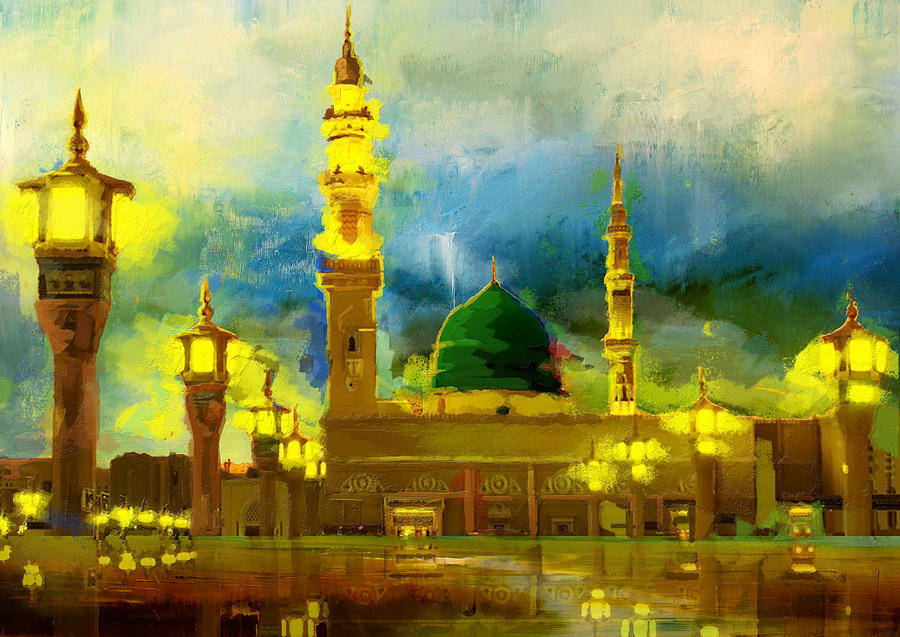 |
This triumphal course of Hindu history suffered a severe setback only with the advent of the Muslim invaders in the middle of the 7th Century AD. The Hindus were now faced with an adversary who was not only qualitatively superior in the art of warfare but also armed with an ideology which was altogether alien and uncompromisingly inimical to the basic premises of the Hindu weltanschaung. The war which the Hindus had to wage against this new adversary was ceaseless and long-drawn-out. The armies of the Arab Caliphate which had humbled the Persian and the Byzantine empires, which had conquered vast territories stretching from the Hindukush to the Atlantic Ocean, and which had converted to Islam vast populations en masse, could not advance beyond Sindh in spite of repeated invasions.
The Ghaznavids, the Ghoris, the Khaljis, the Tughlaqs and the Mughals who followed fared much better and succeeded in establishing imperial dynasties which ruled over large parts of India for several centuries. But Hindu resistance did not cease for a day. The Rajputs, the Vijayanagar Empire, the Marathas, the Bundelas, the Jats and the Sikhs rose in fierce revolt, one after another, till the fabric of Muslim rule was destroyed and dispersed by the middle of the 18th Century. And the number of converts which Islam-considering its political power and intentions-could win during its long spell of seven centuries was rather small.
This victory of the Hindus over the Islamic hordes could not be consolidated due to the intervention of the British invader who wielded not only an unprecedented superiority in the art of warfare but also a much subtler weapon of diplomacy. The Hindus were enslaved once again. The British also brought with them, in the form of Christianity, an ideology which too was altogether alien and intensely inimical to the basic tenets of the Hindu way of life.
Fortunately for the Hindus, Christianity in the West including Britain was soon overwhelmed by the rising tide of humanism, rationalism and universalism inspired by the revival of the Greek heritage. Christianity, therefore, could not obtain an unbridled sway in the counsels of the British rulers as Islam was able to do in the courts of the Muslim kings. It was only under an earlier invader from the West, the Portuguese, that Christianity was able to harass the Hindus for some time and in some areas.
The struggle against the British invader was also not as long-drawn-out as against the Muslim marauders. The rise of liberal democracy in Britain was a great help to the Hindu freedom fighters. None-the-less, the battle had to be fought on many fronts, revolutionary and constitutional, violent the non-violent. It is a point of some pride for the Hindus that their struggle for freedom inspired similar struggles in many countries of Asia and Africa, and that the dawn of Indian independence in 1947 heralded an era of independence for many an enslaved nation.
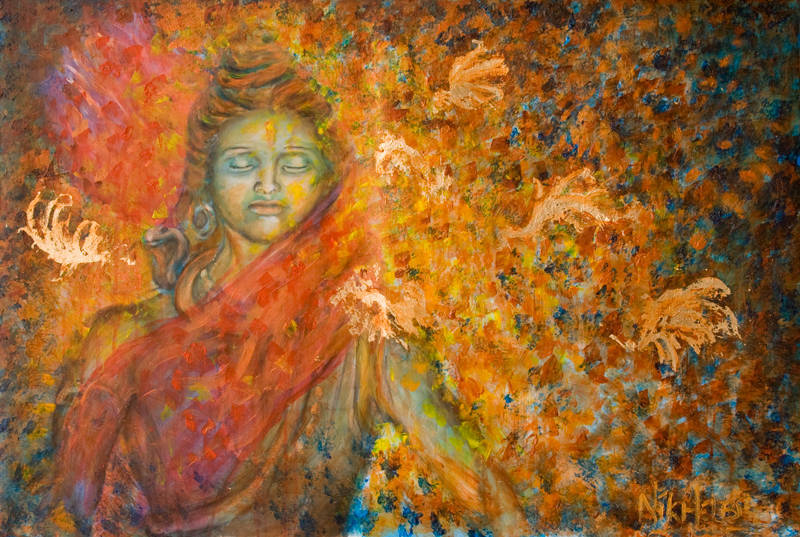 |
A society which has survived invaders who devastated and ultimately destroyed so many ancient societies, should be rightly regarded as the wonder of world history. The foreign invasions of India have been brought into bolder relief by the very fact that Hindu society defeated and dispersed all of them in the final round. Only that society can boast of freedom from foreign invasions which has lost its identity, body and soul, into that of the conqueror. Such a society leaves no successors who retain a racial or cultural memory, and who can spread out in national homage a roll of honour for its heroes. With all its weaknesses, Hindu society has never been such an imbecile society.
In the normal course, the Hindus who had such a glorious history should have come into their own after 1947 and resumed their career of newer cultural creations. But the balance-sheet of this saga of struggle and sacrifice for freedom has not turned out to be favourable to the Hindus. They have lost to an alienated section of their own race some of the hallowed lands which were at one time the very cradle of Hindu culture and civilisation. And they are no longer the honoured citizens even in their own homeland. A permanent stigma seems to have stuck to the terms Hindu and Hinduism. These have now become terms of abuse in the mouth of that very elite which the Hindu millions have raised to the pinnacle of power and prestige with their blood, sweat and tears.
How did this happen?
Sita Ram Goel concludes that the Muslim and British invasions of India, though defeated and dispersed, have yet managed to crystallise certain residues-psychological and intellectual-which a battered Hindu society is finding it very difficult to digest. These residues are now in active alliance with powerful international forces, and are being aided and abetted on a scale which an impoverished Hindu society cannot match. And, lastly, although at loggerheads amongst themselves, these residues have forged a united front which is holding Hindu society under siege. The danger is as much from within as from without.
What are these residues of foreign invasions which are holding Hindu society under siege?
The Muslim invasion of India crystallised one residue which we shall name as Islamism. The British invasion, on the other hand, gave us two residues which we have named Christianism and Macaulayism. We shall analyse their roles in India and their alliances with international forces, one by one, before we present a picture of the united front they have forged to fight the Hindus all along the line.
- Part 2 - The Residue of Islamism - Hindu Society Under Siege
- Part 3 - The Residue of Christianism - Hindu Society Under Siege
- Part 4 - The Residue of Macaulayism - Hindu Society Under Siege
- Part 5 - The Communist Conspiracy - Hindu Society Under Siege
- Part 6 - The United Front of Hostile Forces - Hindu Society Under Siege
References:
voiceofdharma.org - Hindu Society Under Siege - Sita Ram Goel - Voice of India, New Delhi
 Support Us
Support Us
Satyagraha was born from the heart of our land, with an undying aim to unveil the true essence of Bharat. It seeks to illuminate the hidden tales of our valiant freedom fighters and the rich chronicles that haven't yet sung their complete melody in the mainstream.
While platforms like NDTV and 'The Wire' effortlessly garner funds under the banner of safeguarding democracy, we at Satyagraha walk a different path. Our strength and resonance come from you. In this journey to weave a stronger Bharat, every little contribution amplifies our voice. Let's come together, contribute as you can, and champion the true spirit of our nation.
Please share the article on other platforms
DISCLAIMER: The author is solely responsible for the views expressed in this article. The author carries the responsibility for citing and/or licensing of images utilized within the text. The website also frequently uses non-commercial images for representational purposes only in line with the article. We are not responsible for the authenticity of such images. If some images have a copyright issue, we request the person/entity to contact us at This email address is being protected from spambots. You need JavaScript enabled to view it. and we will take the necessary actions to resolve the issue.


